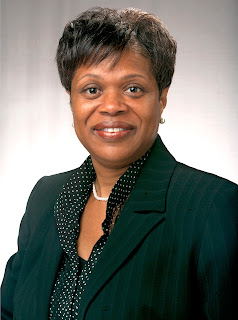Restorative
practices may or may not be a term that is familiar in the early childhood
educators. “Restorative” means
participation by everyone who is affected by decisions, a widening of circle,
focus on responsibilities and effects of actions, rather than blaming and
labeling (Zehr, 1990; Wachtel & McCold, 2000). Yes, this is a mind shift for early childhood
educators of their implicit and explicit biases of Black students to shift the focus
from the student (Black) to the inappropriate behaviors (e.g., aggressive,
physical aggression, destroying property, tantrum behaviors, verbal aggression,
noncompliance) towards recommendation to be suspended or expelled from program. This is a process where all early childhood
educators and other adults in the program must be willing to participate in the
process fully for effective change in eradicating the cradle to prison pipeline.
It’s time to change the typical
disciplinary actions that a childcare facility has in place which will lead
towards the suspension and/or expulsion of students, particularly Black where
the number is 3.6 times than their White age peers. The culture shift towards restorative
justice practices reiterates an accountability measure towards the
reduction and/or elimination of suspension/expulsions towards increase in
student engagement and belongingness.
Remember, the Black culture represents collective community practices where
everyone belongs. Black students and the
culture itself are more expressive in other manners than being verbally
expressive where they should be given the opportunities if not have the words
to articulate having the ability to use imaginary as well.
Everyone comes together in a
circle (small circle group, large circle group) for open conversation to discuss
topics where all the children are given time to identify the problem and then share
how it might be resolved (problem solving techniques). The method encourages the participation in
dialogue leading towards understanding and accountability of the inappropriate
behavior being discussed towards restorative justice practice towards healing,
restoring relationships, and developing a plan of accountability. Communication is a key essential strategy
for restorative justice practices and early childhood educators must be
knowledgeable to Black communicative skills which may be more non-verbal
expressive through actions (e.g., pictures, drawings) and working
collaboratively than verbally speaking what’s happening. Early childhood educators will facilitate with
student’s oral fluency development building upon expressive language skillset
along with posing questions and assisting Black student with the language, as
needed. Receptive language can be
engaged daily through read-aloud, related activities, and role-play scenarios
of acceptable ways to engage appropriately in the community learning
environment that the behaviors will lead towards the reduction and/or
elimination of suspending/expelling Black students.
Restorative
justice practices within the circles (small group circle, large group
circle) again as a place where all students voices are listened to, given the ability
to speak (verbal, non-verbal) and taking responsibilities for displayed inappropriate
actions in the community of learning environment. Other components of restorative practice
circles create the community of learning for all students to thrive while building
strong community learning environment bonds and relationships among early
childhood educators, students and parents which are key towards success
particularly for Black students where early childhood educators are supportive,
respectful, and aligning Black culture experiences as part of the restorative
justice practices. Within
restorative practice circle meetings they may include instructing students the
importance of deep breathing towards regaining self-control, taking out time
for a quiet pause to re-think thoughts of what’s being stated, incorporate yoga
poses to re-center one’s self to think more clearly as part of self-regulation,
conduct temperature checks to determine body clues as needed to regroup because
actions may harm classmate, self, adults, and/or materials intentionally, teaching emotional skills with appropriate
responsive actions, and reinforce the importance of listening as other speak
and/or display communicative techniques used to get thoughts conveyed which reiterates
everyone especially the students have a
voice of power. The restorative practice
circles core is to build relationships within the community learning
environment building awareness of inappropriate behaviors and the impact of
one’s actions towards the suspension/expulsion of Black students who are 3.6
times than their White peers. In
addition, early childhood educators need to embed more affective statements
through modeling and role-play facilitating student’s knowledge and application
of expressing the reason of their feelings and what’s needed to feel better in
cultivating proactive and sustaining powerful relationships of belonging.
Overall, restorative justice
practice is a cultural norm that must be taught and facilitated by early
childhood educators and childcare facility at large in the community learning
environments in conjunction with family members. Black family members and
students need to know restorative justice practice circles along with other
restorative justice philosophical methodologies which will incorporate working
on positive appropriate behaviors centered around social emotional learning,
executive function related to self-regulation, and building connectedness with
trust and supportive relationships taking responsibility for their actions
through inclusive language.
References
Wachtel, T., & McCold, P. (2000).
Restorative justice in everyday life.
In J.
Braithwaite & H. Strang (Eds.), Restorative justice in civil society
(pp. 117-
125). New York:
Cambridge University Press.
Zehr, H. (1990).
Changing lenses: A new focus for crime and justice. Scottdale,
PA:
Herald Press.
















